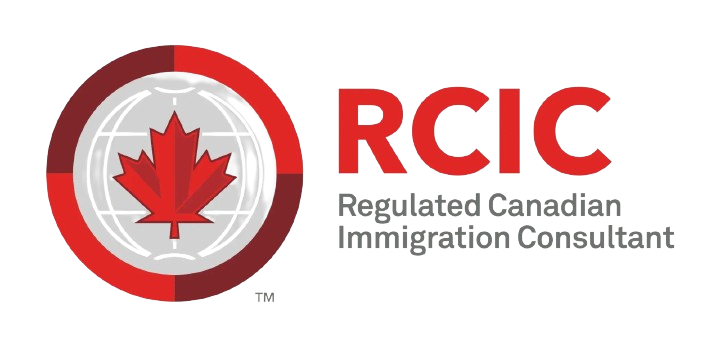The Canadian Experience Class (CEC) is an immigration program that allows individuals who have worked in Canada for at least one year to immigrate permanently. CEC is a part of Canada Express Entry. immigration system
The government of Canada recognizes the deep pool of talented workers already working in Canada, and wants them to become Permanent Residents. These are individuals and families who have set down roots and made plans for the future in Canada.
Once a skilled worker meets the eligibility criteria of the Canadian Experience Class (CEC) Program and submits an Express Entry profile, IRCC ranks the profile among other skilled workers using a Comprehensive Ranking System (CRS) Score. The profile with the highest CRS Score receives the highest rank in the Express Entry Pool, increasing the chances of receiving an invitation from IRCC to apply for a Canadian Permanent Residence Visa.
Canadian Experience Class Latest Draws 2025
Here is a list of the latest Canadian Experience Class (CEC) draws with the number of invitations and minimum CRS points:
| Draw No. |
Date |
Number of Invitations |
Minimum CRS Points |
| 335 | February 5, 2025 | 4,000 | 521 |
| 333 | January 23, 2025 | 4,000 | 527 |
| 332 | January 8, 2025 | 1,350 | 542 |
| 326 | November 19, 2024 | 400 | 539 |
| 323 | November 13, 2024 | 400 | 547 |
| 320 | October 22, 2024 | 400 | 539 |
| 317 | October 9, 2024 | 500 | 539 |
| 315 | September 19, 2024 | 4,000 | 509 |
| 312 | August 27, 2024 | 3,300 | 507 |
| 309 | August 14, 2024 | 3,200 | 509 |
| 307 | July 31, 2024 | 5,000 | 510 |
| 304 | July 17, 2024 | 6,300 | 515 |
| 297 | May 31, 2024 | 3,000 | 522 |
| 204 | September 14, 2021 | 2,000 | 462 |
| 202 | August 19, 2021 | 3,000 | 403 |
| 200 | August 5, 2021 | 3,000 | 404 |
| 198 | July 22, 2021 | 4,500 | 357 |
| 196 | July 8, 2021 | 4,500 | 369 |
| 194 | June 24, 2021 | 6,000 | 357 |
| 192 | June 10, 2021 | 6,000 | 368 |
| 190 | May 31, 2021 | 5,956 | 380 |
| 188 | May 20, 2021 | 1,842 | 397 |
| 187 | May 13, 2021 | 4,147 | 401 |
| 185 | April 29, 2021 | 6,000 | 400 |
| 183 | April 16, 2021 | 6,000 | 417 |
| 181 | April 1, 2021 | 5,000 | 432 |
| 179 | March 18, 2021 | 5,000 | 449 |
| 176 | February 13, 2021 | 27,332 | 75 |
| 174 | January 21, 2021 | 4,626 | 454 |
| 172 | January 7, 2021 | 4,750 | 461 |
| 161 | August 20, 2020 | 3,300 | 454 |
| 157 | July 23, 2020 | 3,343 | 445 |
| 154 | June 25, 2020 | 3,508 | 431 |
| 152 | June 11, 2020 | 3,559 | 437 |
| 150 | May 28, 2020 | 3,515 | 440 |
| 148 | May 14, 2020 | 3,371 | 447 |
| 146 | April 30, 2020 | 3,311 | 452 |
| 144 | April 16, 2020 | 3,782 | 455 |
| 142 | April 9, 2020 | 3,294 | 464 |
| 140 | March 23, 2020 | 3,232 | 467 |
| 3 | February 20, 2015 | 849 | 808 |
Get Free Consultation Call
Canadian Experience Class Eligibility
The Canadian Experience Class (CEC) is specifically designed for skilled workers who have Canadian work experience and want to become permanent residents. To be eligible for the CEC, candidates must meet several criteria:
1. Work Experience: Applicants must have at least one year of skilled work experience in Canada, gained within the three years before applying. This experience must be in a National Occupational Classification (NOC) skill type 0, A, or B job.
2. Language Proficiency: Candidates must meet the minimum language proficiency levels in English or French, which are Canadian Language Benchmark (CLB) 7 for NOC 0 or A jobs, and CLB 5 for NOC B jobs.
3. Education: While there is no specific education requirement for the CEC, having a higher level of education can improve a candidate’s CRS score.
4. Legal Status: Applicants must have gained their work experience while legally authorized to work in Canada.
Meeting these eligibility criteria is crucial for candidates to be considered for the CEC program.
Calculate Your CRS
Apply for Canadian Experience Class in 2025
Applying for the Canadian Experience Class involves several steps:
1. Check Eligibility: Ensure you meet the eligibility criteria for the CEC program.
2. Documentation: Prepare all necessary documents.
3. Create an Express Entry Profile: Complete an online profile on the Immigration, Refugees, and Citizenship Canada (IRCC) website. This profile will include information about your skills, work experience, language ability, education, and other details.
4. Receive an Invitation to Apply (ITA): If you meet the eligibility criteria and have a competitive CRS score, you may receive an ITA during one of the regular Express Entry draws.
5. Submit Your Application: Once you receive an ITA, you have 60 days to submit a complete application for permanent residence. This includes providing all required documents and paying the application fees.
6. Timeline of Process: After submitting your application, IRCC will review it and make a decision. Processing times can vary, but most applications are processed within six months.
7. Receive Confirmation of Permanent Residence (COPR): If your application is approved, you will receive a COPR and instructions on how to complete your permanent residence process.
Get Free Consultation Call
Important FAQ's
Work experience gained while studying in Canada, including co-op placements and internships, cannot qualify for the Canadian Experience Class (CEC). Eligible work experience must be obtained after graduation while holding a valid work permit, reflecting the candidate's ability to perform independently in the Canadian labor market.
Processing times for CEC applications typically range within 6 months from the submission date to Immigration, Refugees and Citizenship Canada (IRCC). Factors affecting this timeline include application completeness, volume, and any additional documentation required.
There is no specific age limit for the CEC; however, age is a factor in the Comprehensive Ranking System (CRS). Candidates aged 20 to 29 receive the highest points, and older applicants may need to achieve higher scores in other areas like language proficiency, education, or work experience to remain competitive.
The Australia Immigration Plan 2024-2025 aims to address critical skill shortages, enhance economic productivity, support the transition to net-zero emissions, and promote social cohesion. The plan includes various visa streams and categories, focusing on skilled migration, family reunification, and special circumstances.
For the 2024-2025 Migration Program, the allocation of invitations for the Business Innovation and Investment Program (BIIP) has been substantially reduced by 62%, dropping from 5,000 visas in the previous year to 1,900 visas.
The closure of the New Zealand stream of subclass 189 (Skilled – Independent) visa, effective from 1 July 2023, has led to a reduction in available visas for this category. This change is part of a broader strategy to reallocate resources and adjust pathways for different migrant groups.
The Global Talent Visa (GTV) program continues to play a significant role in the 2024-2025 Immigration Plan by delivering high-caliber skills to Australia. The program has maintained its allocation of 5,000 invitations, focusing on attracting exceptionally talented individuals in key sectors.












